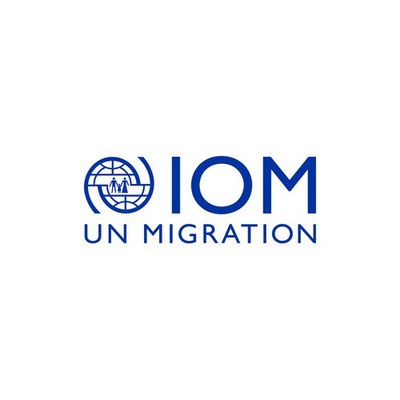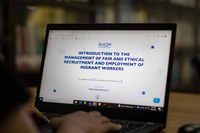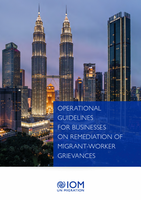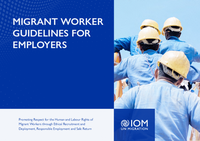
International Organization for Migration (IOM)

This is a training course for business enterprises seeking practical guidance on how to recruit and employ migrant workers responsibly within their operations and supply chains. This module is aligned with international human rights and labour rights standards, as well as guiding frameworks on international migration. It is informed by IOM’s extensive experience working with governments, civil society, migrant workers, and the private sector, as well the collection of good practices by employers, labour recruiters, and multinational enterprises. Audience This course is designed for businesses recruiting and employing migrant workers within their operations and supply chains, who would like to align their policies, practices, and management systems with international recruitment and employment principles. Overarching objective The overarching objective of this course is to provide business enterprises with an understanding of how to uphold key human and labour rights principles during all stages of labour migration. Learning objectives - Understand why treating migrant workers respectfully is necessary to run a sustainable business. - Gain an overview of all stages of the labour migration process, including recruitment and deployment, employment, and return or onward migration. - Learn how to establish human rights policies, due diligence processes, and remediation systems. - Discover good practices for engaging and supporting migrant workers.

IOM's Operational Guidelines for Businesses on Remediation of Migrant Worker Grievances
The Operational Guidelines for Businesses on Remediation of Human Rights Grievances (the “Guidelines”) are created to primarily help companies and industry groups to develop voluntary programmes to remediate worker grievances, especially with regard to addressing human rights concerns of migrant workers in international supply chains. Given the number of stakeholders involved in any particular industry or region, the Guidelines are also relevant to the work of other interested third parties, including International Organizations, Non-Government Organizations (NGOs), community-based organizations (CBOs), civil society organizations (CSOs) and worker groups.

IOM's Migrant Worker Guidelines for Employers
This publication is to provide practical guidance for business enterprises on how to recruit and employ international migrant workers ethically and responsibly. The guidance offers concrete steps employers across various sectors can take to run their businesses in a manner that respects human and labour rights of migrant workers. The guidance is primarily for human resources and personnel engaged with migrant workers and can be integrated in existing company policies, procedures and practices. The guidance builds on the United Nations Guiding Principles on Business and Human Rights (UNGP) and relevant international human rights and labour standards and frameworks on international migration. It has been developed as part of the IOM’s Corporate Responsibility in Eliminating Slavery and Trafficking (CREST) initiative, through an extensive multi-stakeholder consultation process. The guidance is accompanied by a set of supporting tools including checklists, guidance notes and other useful documents, to help employers develop and implement the system, principles and practices to manage the labour migration process.

Tips for Coping with Isolation during COVID-19 (Myanmar)
COVID-19 has changed our lives. It has given us new things to worry about, separated us from our family and friends and presented us with new responsibilities. Many of us are facing challenges that can be stressful, overwhelming and cause strong emotions.

Tips for Coping with Isolation during COVID-19 (Khmer)
COVID-19 has changed our lives. It has given us new things to worry about, separated us from our family and friends and presented us with new responsibilities. Many of us are facing challenges that can be stressful, overwhelming and cause strong emotions.
